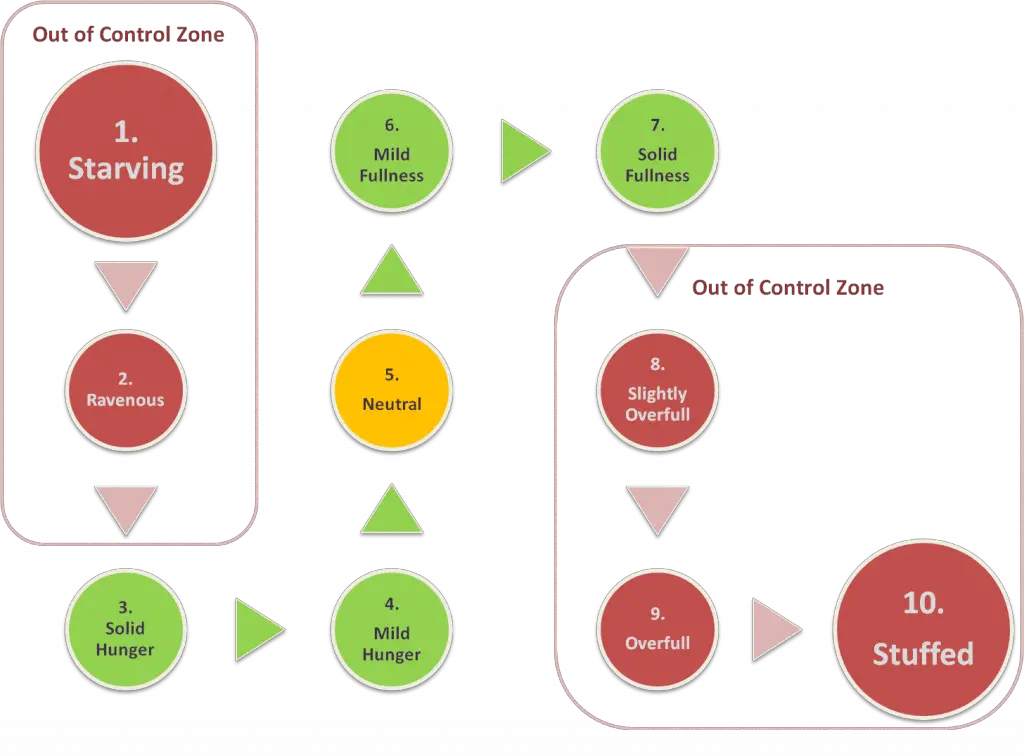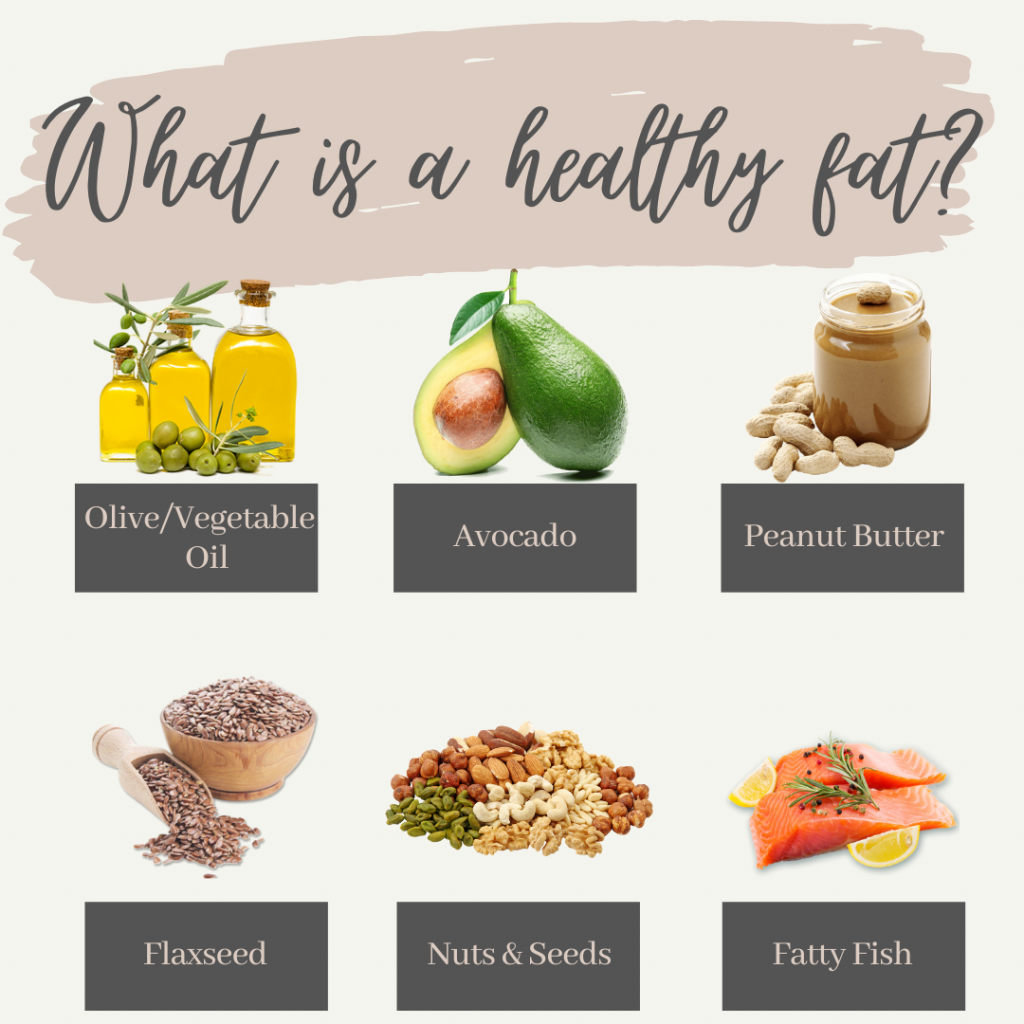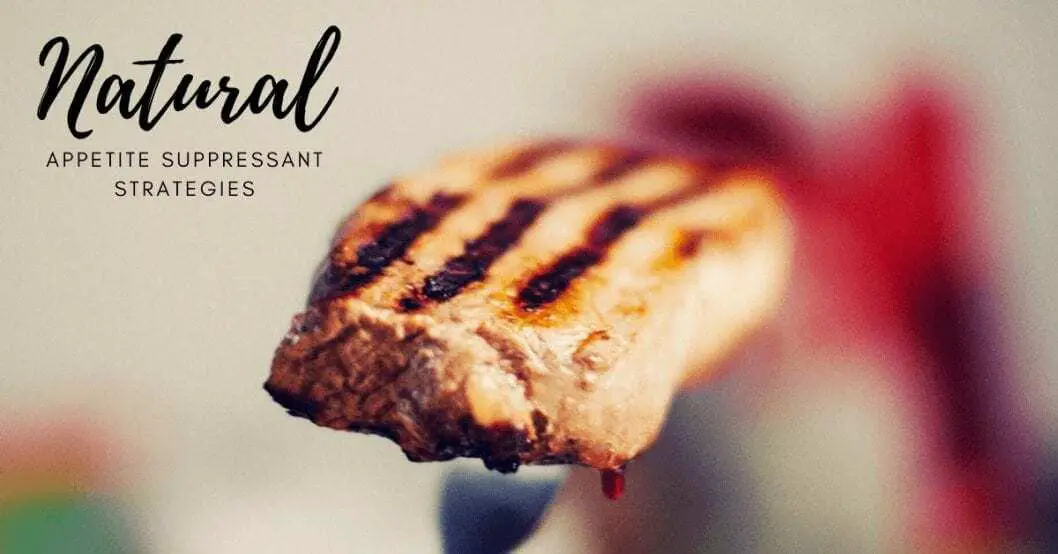Are you wondering about natural appetite suppressant strategies so you can stop overeating and binge eating?
You know … not pills but natural means to stop cravings and uncontrollable appetite?
If you’re looking to reduce your cravings and out-of-control appetite …
You are also skeptical and suspicious of appetite suppressant pills…
Here are 13 natural binge appetite suppressant strategies that have nothing to do with medication!
These natural strategies will help you prevent losing control over your appetite, so you won’t need to rely on a weight loss pill.
(If you are looking for medication-based appetite suppressant pills, this post is NOT for you. This post is about natural strategies)
- Eat more regularly
- Eat more healthy fats
- Drink more water
- Eat more complex carbohydrates
- Have more protein
- Eat more vegetables
- Allow yourself to have some sweets
- Practice mindful eating
- Stop dieting
- Eat when hungry
- Learn health at every size principles
- Move your body
- Find stress relief
Navigating weight loss often leads to a tough road of motivation, where the lure of appetite suppressants seems like an easy fix. Yet, true change lies in mindful practices, such as food journaling, which the Eating Enlightenment Food Journal App champions.
This app enhances your mealtime awareness, fosters self-understanding, and invites you to savor each bite, moving beyond mere weight management to holistic wellness. Download it on IOS and Android to transform your relationship with food into mindfulness and empowerment.
Defining The Term’ Appetite Suppressant’: Medication Versus Strategy
I will cover these 13 natural binge appetite suppressant strategies, but first, we need to talk about the elephant in the room:
Therefore, before we explore these 13 strategies, you need to understand why eating is the key and the difference between medications and strategies.
There is a big difference between appetite suppressant medication versus natural binge appetite suppressant strategies.
A medication is a pill, whereas a strategy is a habit or behavior.
Now that we’re clear on definitions, in the rest of this article, we will :
- Show how appetite suppressant medication does not work, why, and how to see through medical mumbo jumbo
- Review 13 natural binge appetite suppressant strategies
It’s important to note that these 13 strategies do not mean your appetite will disappear and you will magically no longer desire food. You will still have an appetite—it won’t be blocked or anything like that.
Instead, if you practice these 13 natural binge appetite suppressant strategies, you will curb your appetite so that you don’t lose control over your appetite and can avoid binge eating. Does this make sense?
For the following few sections, we’ll explore anxieties about and barriers to eating. Then, I’ll cover these 13 natural appetite suppressant strategies to prevent your appetite from getting out of control, ultimately leading to a binge episode.
(Hint: you need to overcome food fears to eat more regularly, and this will reduce your overall food intake – instead of relying on pills)
Do Any Appetite Suppressants Work? The Truth Behind Suppressing Your Appetite
Before exploring the 13 natural appetite suppressant strategies, it’s important to identify the motivation driving you to search for appetite suppressants. Why do you want to suppress your appetite in the first place?
There are often two primary reasons why we desire a green tea extract or some random pill with dubious side effects:
- 1. You want to lose weight, reduce your food intake, and control your hunger
- 2. AND – In the past, you lost control of yourself regarding food.
- You had a goal to lose weight, but you self-sabotaged
- You were succeeding in your goal to lose weight, but then your hunger and appetite made you fail
- Now you don’t trust yourself, your hunger, or your body around food
Many people seek out appetite suppressants because they fear hunger and feel they cannot manage their hunger or body weight independently. They think they need some medication to help out.
I’d like to suggest that your fears about your appetite developed because you didn’t have access to these 13 holistic strategies, which I will cover below.
You were missing a piece of the puzzle (or several pieces) in your previous attempts to control your appetite.
As you were missing a link/s, you couldn’t help but lose control of food. The 13 holistic strategies are meant to give you an extensive picture of reducing your appetite so you no longer overeat.
Before I detail these strategies, I need also to talk more about binge eating.
Binge Eating and the Desire to Use Appetite Suppressants When You Cannot Control Your Eating

The diagram above shows the very common cycle of binge eating. People binge eat (or overeat) and then feel guilty and ashamed.
In response to overeating, you may develop a fear of food and hunger. Once you start to become afraid of food, hunger, and weight gain, you begin searching for weight loss pills and other products to suppress your appetite.
Unfortunately, after people overeat (due to not knowing holistic eating strategies), they then blame themselves. Often, after someone overeats, they think they have a problem and need medication to solve their problems.
In reality, this person simply didn’t have the right eating habits. If this person had the right eating habits, they would not have lost control over their appetite and would never have binged.
But now, having binged, it’s easy to want to try an appetite suppressant like garcinia cambogia or green tea to manage fat loss, but that is just a cheap trick that’s easy to fall for and can have dangerous side effects.
Here’s a recent real-life situation that illustrates how someone overeats, loses trust in themselves, and seeks out appetite suppressant medication:
A woman recently messaged me on Facebook with an innocent question:
“Which appetite suppressant pill would you recommend? I am constantly overeating way too much, and my doctor is recommending garcinia cambogia. Have you heard of this? I know I need something because I lose total control of my food. I am looking online, and there are so many different options, and I don’t know what to do?!? What would you recommend?“
Do you relate?
Can you see how this woman searches for control over her food and doesn’t trust her body around food?
I wanted to reply immediately and tell her, “Your doctor should never recommend an appetite pill. Appetite-suppressant products like garcinia cambogia do practically nothing to reduce your food cravings and can even cause high blood pressure and heart rate!”
If you are asking the same question or thinking similarly, it’s essential to know that appetite suppressants do not work long-term and have many adverse side effects:
- Increased heart rate
- Increased blood pressure
- Sweating
- Constipation
- Insomnia
- Excessive thirst
- Lightheadedness
- Drowsiness
While I do use the term appetite suppressant strategy in this post, I am careful to mention that these strategies are natural to stop binge eating and are not medication-based.
I also emphasize that these strategies suppress appetite and prevent it from getting out of control. They are preventative in nature, not medication-based.
You must realize no drug ever suppresses your appetite long-term!
What Drug Suppresses the Appetite? Say No To Doctor’s Pushing Appetite Suppressant Pills On You
As stated above, no drug will suppress your appetite in the long term!
Now I understand that, just like this woman, you may have a doctor or medical person recommend that you try an appetite suppressant pill to lose weight.
It can be easy to think that there are drugs out there that will suppress your appetite, and it is even easier when your doctor recommends a pill. But the simple truth is that weight loss pills or appetite suppressants don’t work.
Please know that there have been no independent studies on appetite suppressants, and therefore, there is no proof that they work over the long run. The likelihood of you succeeding in weight loss and keeping the weight is 0%.
Please keep this in mind because you may have heard of people trying medication-based appetite suppressants and losing weight. Yes, some pills do give you massive doses of caffeine (and sometimes even methamphetamine). Yes, there are pills out there that can lower your hunger temporarily.
(And I realize you may desperately want one of these products!)
But the key word is temporary. Any weight you lose with an appetite suppressant medication, you will gain back in all likelihood. Keep in mind that several countries have also banned appetite suppressants because they have been linked to death and unpleasant side effects.
Suppose a doctor or medical person recommends an appetite suppressant for weight loss – run fast. These pills have dangerous side effects at worst, and at best, they only temporarily work in the short term.
I know that it can be challenging to resist the advice of a doctor or medical person, but I want you to know that … doctors used to recommend cigarettes!

While I don’t mean to disparage doctors, you need to think for yourself in this case.
Have you ever tried a weight loss pill before? Did it work? Maybe temporarily, but why didn’t you stick with it long-term? Perhaps because the side effects were too harmful or unsustainable?
Ok, you get the point. Medications don’t work; natural strategies and habits do. Are we clear?
Here is a YouTube video I made on the topic:
What Is A Natural Appetite Suppressant? 13 Natural Examples
I am writing this post to help you get control over your overeating and food cravings. If you follow these strategies, your appetite will no longer swing out of your control, and you will be considerably more normal with food.
These appetite strategies will help you prevent and suppress your appetite from getting out of control. They will also help you stop binge eating, eat healthier, feel more energized, and probably lose weight. But they won’t magically make your hunger go away (and you don’t want that anyway!).
Let’s explore these strategies one by one:
1 – Eat more regularly

I start with this principle because many other tenets follow from and complement eating more regularly.
The idea is simple. Get a regular schedule of eating!
At the residential eating disorder treatment center where I currently work as a Recovery Counselor, the whole eating disorder treatment program for anorexia, bulimia, and binge eating revolves around having a regular meal schedule.
Below, you can see the clinic’s eating schedule. Please note that meal times are fixed because the clinic serves a group of people. However, for an individual who wants to follow this principle, know that you do not have to have a rigid, fixed set time for each meal.
I’ll talk more about how an individual can implement a flexible meal schedule, but first, here’s the meal schedule:
- 8 am breakfast
- 10 am Snack
- Noon Lunch
- 3 pm Snack
- 6 pm Dinner
- 9 pm Snack
Now, as an individual reading this, I want you to focus on how these people who are being treated for eating disorders must eat six times per day!
That is very regular. Now, what I usually suggest for an individual who needs to eat more regularly is the following guidelines:
- Give or take 30 minutes, use a flexible window where you could eat breakfast between, say, 7:30 am-8:30 am
- You may also adjust your schedule; if you wake up at 5 a.m., don’t wait until 8 a.m. You could also have similar flexible windows for lunch and dinner.
- You don’t need six meals per day, but at least get three meals and 1-3 snacks.
- Commit to a program of regular eating for one month and see how it impacts your appetite
Eat more healthy fats

Perhaps the best way to suppress your appetite is by adding healthy fats to your diet. Adding these to your meals will suppress your hunger for hours after you eat instead of getting hungry right after you finish a meal.
- olive oil
- avocado
- nuts and seeds
- eggs
2 – Drink more water

Every time you have a snack or meal, drink a cup of water or more.
Water is essential because sometimes your stomach is thirsty for water, but you can easily mistake this sensation for hunger. Sometimes, people are thirsty and eat food to quench their thirst!
If you drink water regularly, the only downside is that you’ll have to pee more. To be fully transparent, I have doubled my water intake, and my headaches have decreased while my overall sense of wellness has increased. However, I am also taking more bathroom breaks during the day, about 4-6, by my estimate!
This is one example of why having a regular, flexible eating schedule is so important. When you are committed to a regular schedule, you can easily remember to drink more water.
3 – Eat more complex carbohydrates
Here is an example list of foods with more complex carbohydrates.
- Brown rice
- Whole wheat or other whole-grain bread
- Whole grain pasta
- Beans
- Lentils
- Potatoes
- Peas
- Yam
- Corn
- Yucca
- Squash
- Pumpkin
4 – Have more protein
At the eating center where I work, clients are monitored carefully and compassionately to see that they have a complex grain and protein each meal and snack.
Can you imagine eating a complex carbohydrate from the list above and a protein from the list below, 3-6 times per day?
- Fish
- Turkey
- Chicken
- Soybeans
- Eggs
- Pork chops
- Greek yogurt
- Black beans
You might think that you would gain weight, but oftentimes, because you are no longer binge eating when you are eating this regularly, you lose weight.
5 – Eat more vegetables
Vegetables are great for filling you up without giving you too many calories. They also help with digestion. If you mix vegetables with protein, the protein will combine with the fiber from the veggies, which will make your digestion slow down dramatically.
Want to know how to suppress your appetite? Eat vegetables and protein—lots of both. Fill up on these instead of candy. Your appetite will be suppressed for hours after you eat!
- Leafy greens
- Broccoli
- Spinach
- Kale
- Carrots
- Brussel Sprouts
- Green/red peppers
6 – Allow yourself to have some sweets
If you restrict yourself from having sweets, you’ll want them more! If you wish, you can have some sweets after a meal.
This is part of developing trust with yourself regarding food. You’ll find that if you eat regularly and give yourself permission to eat what you want, you’ll actually eat less of those “bad” foods.
7 – Practice mindful eating
Mindful eating can help you notice your urges and eat less food overall. The idea is simple: When you are distracted, you eat more. Have you ever been in a movie theater and eaten an entire box of popcorn without even noticing?
Here are some ways you can begin to practice mindful eating:
- chewing slowly and without distraction
- attuning to cues like hunger and fullness
- Knowing what hunger feels like versus emotional triggers for overeating
- noticing the taste, colors, sounds, textures, etc
- making your food morally neutral, or practicing non-judgment (for example, don’t label sweets as “bad”)
8 – Stop dieting
Don’t diet! Don’t restrict!
9 – Eat when hungry
The second principle of intuitive eating is to ‘honor your hunger.’
By following this meal plan, you’ll be able to more easily attune to and listen to your body’s various hunger signals.
When you don’t eat regularly or properly, you don’t listen to your body, which ultimately causes you to lose trust in your body around food. Once you have lost connection with your hunger and body, you start searching for one of the various appetite suppressants for weight loss products.
Earlier, we discussed a meal schedule. This may initially seem to contradict your hunger. Hunger is spontaneous, while a meal schedule is more defined and precise. How do you reconcile these principles?
If you are beginning this journey, what you’ll want to do is eat 5-6 times per day (3 meals and 2-3 snacks). You’ll need to keep up this schedule for at least two. After this period, you can evaluate your body’s needs.
For example, after a week of following a meal schedule, perhaps you realize that you don’t need that second snack and can eat more during lunch instead.
Listening to your hunger will allow you to fine-tune your meal schedule, but the schedule is there to keep you grounded. At a minimum, you need to eat three times per day.
(Don’t worry about that intermittent fasting stuff. Get the basics down first. These strategies here are the basics).
10 – Learn health at every size principles
Health at Every Size (also known by the acronym “haes:) is a social justice and health movement that is changing how we view our bodies and what is or is not acceptable.
A foundation of health at every size movement is the idea that different people have different bodies. Often, these differences are due to genetics. While this may sound obvious, the implications of how we view our body fat and shape are profound when we begin to incorporate the idea of genetics.
For example, if someone has genes to be a bigger person, is it right to call this person fat or discriminate against them?
Studying these health principles can help you better understand your weight loss, weight gain, and dieting fears. By uncovering your fears about living in a more extensive body, for example, you will be more easily able to resist dieting messages and commit to taking care of yourself.
The Haes principles may help you become happier because you can become aware of, spot, and ultimately, if you so choose, stand up against discrimination against people living bigger bodies.
11 – Move your body
Go on a walk! Have fun!
Do not exercise to burn calories or lose weight.
Move your body because doing so makes you feel good.
By prioritizing good feelings and joyful movement, you will be more likely to stick with exercise. Often, people emphasize weight loss as the primary reason why they exercise. However, if the weight loss doesn’t come rapidly or things get complicated, the person’s exercise program falls by the wayside.
On the other hand, if you move your body simply because you feel better afterward, you’ll be much more likely to stick with it. And you don’t need that much exercise either! According to the Mayo Clinic, you need 75 minutes of vigorous walking – per week!
12 – Find stress relief
Finally, commit to reducing stress. Here are a few ideas:
- Keep a positive attitude. The glass is half full! (Even if you don’t believe this, look for the silver lining.)
- Accept that events are uncontrollable. What can you control?
- Be assertive, not aggressive. Instead of becoming angry, defensive, or passive, assert your feelings, opinions, or beliefs.
- Learn relaxation techniques to relieve stress and practice them; try meditation, yoga, or tai-chi
- Find new ways to help your body regularly and joyfully. Your body is better able to relieve stress when it’s fit.
- Eat well-balanced, healthy meals with plenty of protein, fats, and carbs.
- Try to listen to sensations of hunger and fullness.
- Don’t freak out When you eat junk food or comfort foods. Stay mindful and pay attention gently.
- Learn to organize and manage your time more effectively so you don’t procrastinate.
- Set appropriate limitations and say no to requests that will create excessive stress.
- Make time for your interests and hobbies, and maybe take a bubble bath too!
- Get enough rest and sleep. Sleep is very important for mental health, and we all need more sleep.
- Try to cut back on alcohol, drugs, or compulsive behaviors.
- Seek social support. Spend time with those that you love. Make sure that you seek out social support.
Some Final Words
And yes, I know. This is a lot of work!
But if you follow the strategies, you will get your overeating under control and won’t need to rely upon dubious weight loss suppressants to curb your food cravings.
You’ll stop binge eating, constantly snacking all day long, and compulsively eating. These 13 principles will help you avoid these appetite pitfalls and avoid reaching critical levels where you consume enormous amounts of calories.
But even if you follow all these principles, you will still have a regular desire for food. You’ll still have appetite hormones and want to eat, but your appetite will no longer be out of control.
And with your appetite within normal ranges, you’ll eat less overall.
Stress relief, movement, eating regularly, and all the nuances of health are a lot to manage. It’s way easier to take one of the various weight loss appetite suppressants instead!
Again, realize that appetite suppressants simply don’t work. They rarely reduce hunger, and even if they do, the negative side effects outweigh the benefits.
Now, in case you are feeling overwhelmed, please don’t think you need to implement all these principles at once. Start with one principle a month. In approximately a year’s, you will have mastered all these principles.
I know that a year sounds like a long time, but the alternative is trying appetite suppressants for even more years on end and never seeing any positive results! Remember that people struggle for decades with their health, so with this perspective, a year is pretty manageable.



